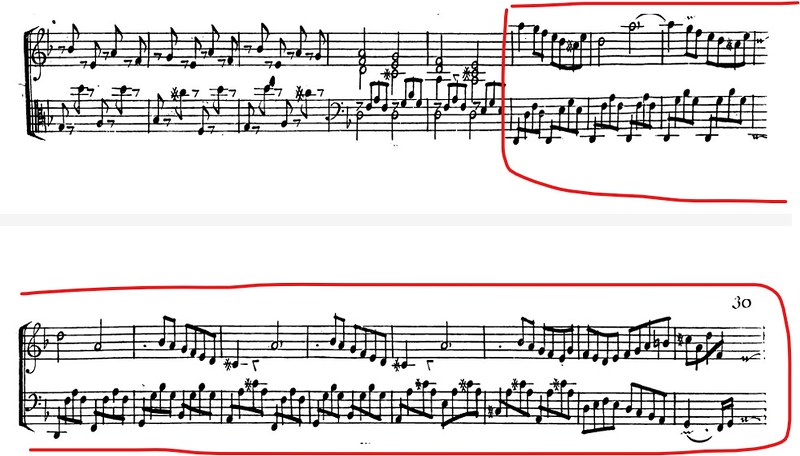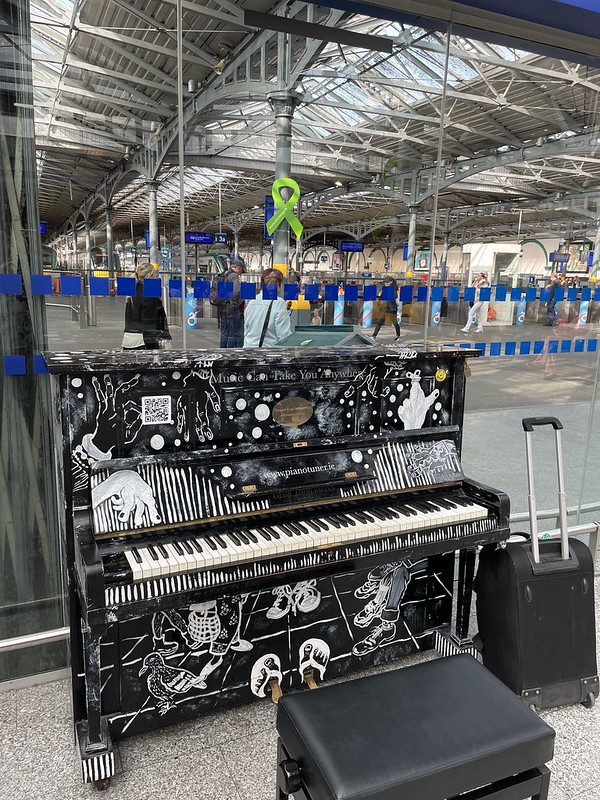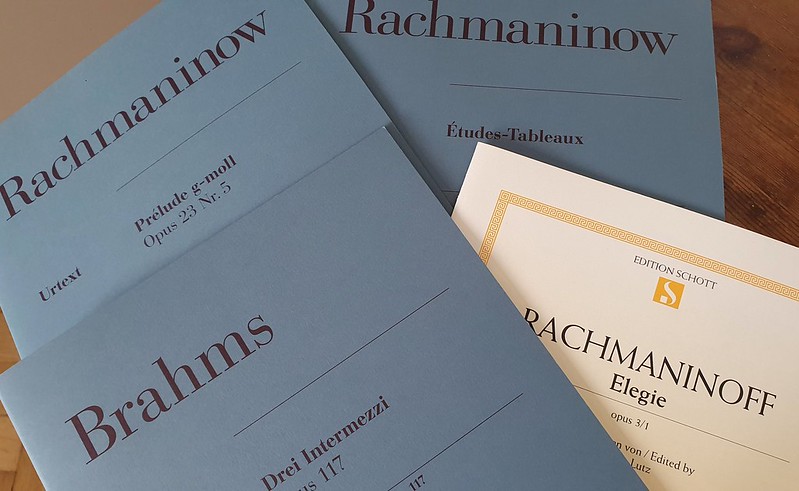If you check under my objectives, you’ll see I’m currently working Grade 6. I wonder sometimes how valid it is that I write a piano blog when I am stuck firmly in the intermediate box as far as classical repertoire is concerned.
I had trouble selecting the List A piece at the time. I was surprised; I thought the List C would be harder but I found recordings of some of them, liked the first one I heard, and off we went.
Out of the four pieces, the Bach is KILLING me. Well, some of it is incredibly easy. The rest of it is killing me. In part, this is a gap in my education. I don’t align so much with Bach as I do with Chopin and Rachmananinininininininoff or indeed Felix. This is not the kind of thing you admit out loud in the piano world. Bach is 42, the answer to life, the universe and everything.
The one piece of Bach that everyone knew (well I never played it but I could pull it out by ear if I really wanted to) turned out to be composed by someone else (Christian Petzold in this case, apparently). The only piece I truly liked was the Toccata and Fugue although Sky might have something to do with that.
It’s worth digging out an organ version too. But that’s not where we are right now.
I want to do the exam performance in February or March in 2024 so I need to get a move on with Bach. I don’t know the Rebikov but I can sight read it without too much difficulty. Learning it by heart is the challenge there and I’m already at a stage where I can deal with thinking about how I want it to sound. But the Bach had been a traincrash and more to the point, Apple’s music search meant I turned up very little when I went looking for a recording of it, at least initially. Once I discovered that looking for Angela Hewitt would be more productive, things got better. I’m now more motivated to learn the Bach because I’ve realised it is a stepping stone to the Rameau that I want to do for Grade 8. So back to Bach we went.
I’m stuck in the middle of the first part. Henle tells me this is easier than the Mendelssohn that while it was a swamp inhabited by dragons from a fingering point of view, it was also readable from day one. I won’t say it was easy to get right but it was easy to motivate myself to pick it apart and start putting it back together.
I don’t believe Henle. Maybe it’s easier if you started playing Petzold instead of a music hall version of the Rose of Tralee, aged 10 (god knows why we had it) but if you’ve somehow got to the age of 50 without doing any counterpoint at all, Bach is a big thick brick wall.
In particular, I’m struggling with the highlighted bars above. Well, the first of them is okay after a great deal of very slow work and repetition. Yes, I have been using a metronome, at length, much to the pity of my neighbours no doubt. But it is very very slow going. I’m operating under the fatal excess optimism that once I manage that, then much of the rest of it being easier than the Mendelssohn might materialise.
On the plus side, it’s a decent enough piece of Bach, and I’ve also spent some time with the C Major Prelude from WTC lately, and I’ve had a look at Aria from the Goldberg Variations. I bought a copy of Anna Maria Bach’s notebook as well (and it has the Petzold in it too which is handy and now I am wondering about getting CPE Bach’s notebook too). And I really, really hope it helps with the Rameau.
In other news, I will see the Goldbergs courtesy of Vikingur Olafsson next week. I am looking forward to it.













